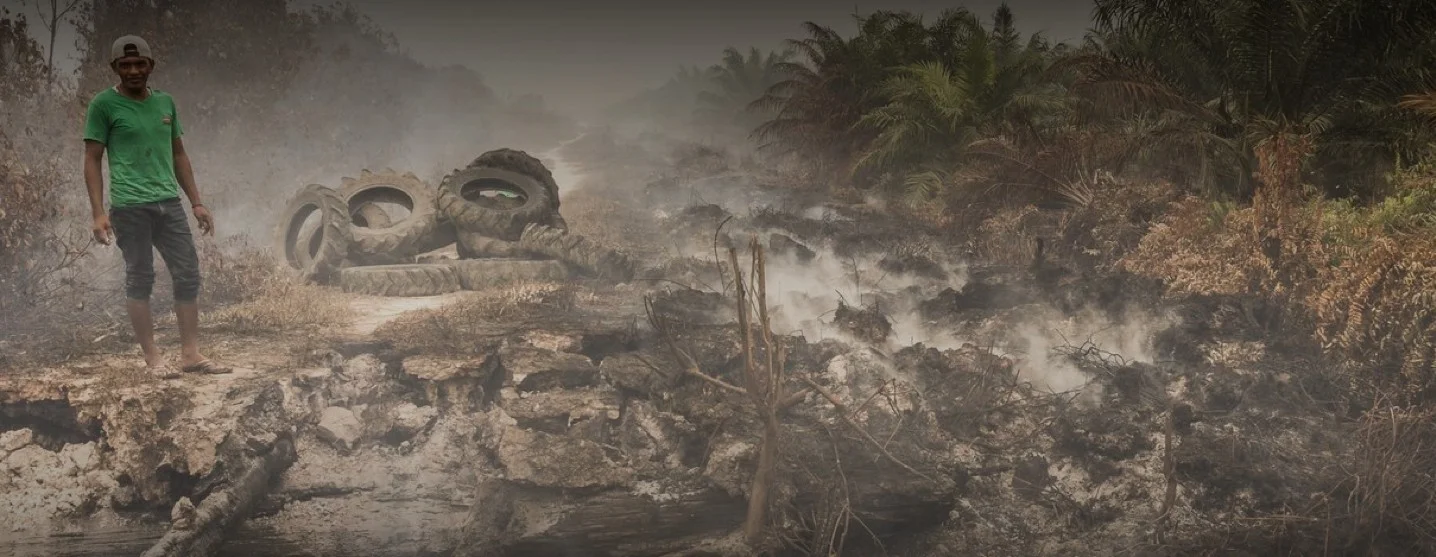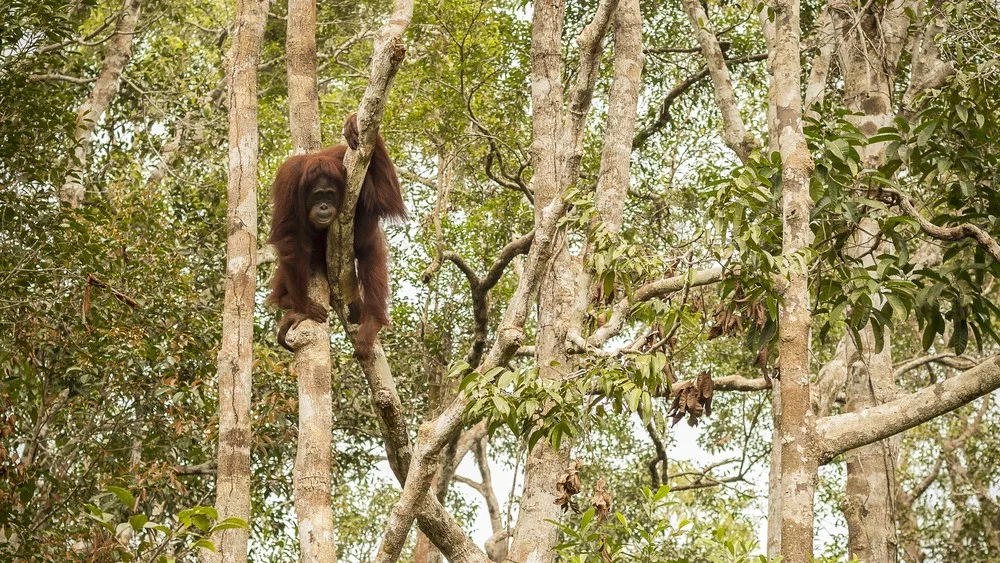The Climate Crisis Hiding in Your Cookies
Palm oil is driving deforestation, climate change, and human rights abuses
Clearcutting for palm oil production is devastating rainforests around the world
Have you eaten an Oreo cookie recently? Or a frozen pizza, or a bowl of ice cream? Do you use soap, or laundry detergent, or cosmetic products?
Then you’re likely buying products that contain palm oil, the world’s most widely used vegetable oil. It’s found in more than half of all packaged products purchased by Americans — but this global explosion in palm oil production is fueling deforestation, climate change, and other harmful environmental and social impacts. And it’s not just in your pantry — investments in palm oil could be hiding in your mutual funds, your pension fund, your IRA, or your school’s endowment.
Environmental and social risks
Palm oil production has more than tripled during the past two decades, and NGOs, consumers, and investors are sounding the alarm about its environmental and social impacts. In Indonesia and Malaysia, the industry’s rapid expansion has been a leading driver of clearcutting and burning of tropical forests, causing skyrocketing greenhouse gas emissions, and loss of habitat for endangered animals like orangutans and Sumatran tigers. Palm oil production is also associated with poor working conditions, land grabs, and a litany of human rights abuses.
Rapid plantation expansion is creating exploitative working conditions, including child labor, forced labor and trafficking of migrant workers, exposing companies to reputational risks. -Engage the Chain
With the world recognizing that the climate cannot afford more rainforest destruction, investments in destructive palm oil companies carry real financial risks. Consumer brands have begun making efforts to drop palm oil producers that destroy forests and violate human rights, and banks are demanding improvements from the producers they finance.
Deforestation driven by palm oil production is threatening endangered animals like orangutans. Photo credit: Friends of the Earth
Investing your values
You have the power to protect yourself from risky palm oil investments and send a signal that business as usual has to change. Using Deforestation Free Funds, a free online tool from As You Sow and Friends of the Earth, you can expose the palm oil investments hidden inside common mutual funds and find investment options that steer clear of dirty palm oil. It’s a simple way to use the power of your finances to defund deforestation.
As an investor, you have power. You can take an active stance in promoting sustainable palm oil sourcing by committing to avoid investing your money in palm oil producers that lag behind peers and harm forests or human rights. But producers aren’t the only place where investors can have an impact — the entire palm oil value chain offers opportunities for positive engagement.
The entire palm oil value chain offers opportunities for positive engagement
The palm oil value chain
Key publicly-traded companies are involved at each stage of the palm oil supply chain. The crop is grown on plantations that are often owned by direct subsidiaries of large agribusiness conglomerates, as well as by smallholder farmers who may or may not by employed directly by the plantation companies. Vertically integrated landowners, refiners, and traders active in palm oil production include companies like Archer Daniels Midland, Bunge, Cargill, Golden Agri-Resources, IOI Group, and Wilmar. While many of these companies are members of the Roundtable on Sustainable Palm Oil (RSPO) and other industry bodies that propose to drive sustainable business practices, these bodies have so far proven insufficient to address the scale and nature of the problems.
Banks and other financial institutions directly and indirectly lend to palm oil companies. Morgan Stanley, HSBC, JPMorgan Chase, Deutsche Bank, ING,and Bank of America all issue loans or other financial support to companies involved in palm oil production. Finally, palm oil makes its way into food products and consumer goods. Companies like General Mills, Kellogg Company, Kraft Heinz, PepsiCo, and Unilever all sell products that contain palm oil.
Retirement investments and the palm oil value chain. Image credit: Friends of the Earth
Defund deforestation
It’s likely that your retirement savings are being used to finance forest destruction. Many popular mutual funds hold shares in palm oil producers, in the banks that fund them, or in the corporations that buy from them.
You can use Deforestation Free Funds to look up U.S. mutual funds and ETFs and find out if your retirement funds are exposed to the palm oil value chain. Responsible investing starts with being informed, and our data allows you to audit your personal investments for palm oil and take action. Armed with that knowledge, you can make sure your money is investing in your values and a healthy future.
Look up your mutual funds on Deforestation Free Funds and see if they’re invested in the palm oil value chain
Unfortunately, most of the large investment management companies in the United States have made little or no commitment to responsible investing when it comes to palm oil and the rainforest. Firms like Dimensional Fund Advisors, TIAA Investments, and Vanguard manage assets for tens of millions of Americans — if that includes you, you can use Friends of the Earth’s advocacy tool to pressure them to embrace forest-friendly investment.
And stay tuned — As You Sow and Friends of the Earth are working on expanding Deforestation Free Funds beyond palm oil to other deforestation-driving sectors like timber, paper/pulp, and rubber production. Together, we can use the power of our savings to keep forests healthy and protect frontline communities.
You can use the power of your finances to protect forests. Photo credit: Friends of the Earth
. . .
SUPPORT THIS WORK
We depend on your support to make this information publicly available to all. Make a gift to As You Sow today!
Disclaimer: As You Sow does not provide investment, financial planning, legal, or tax advice. Read our full disclaimer.






